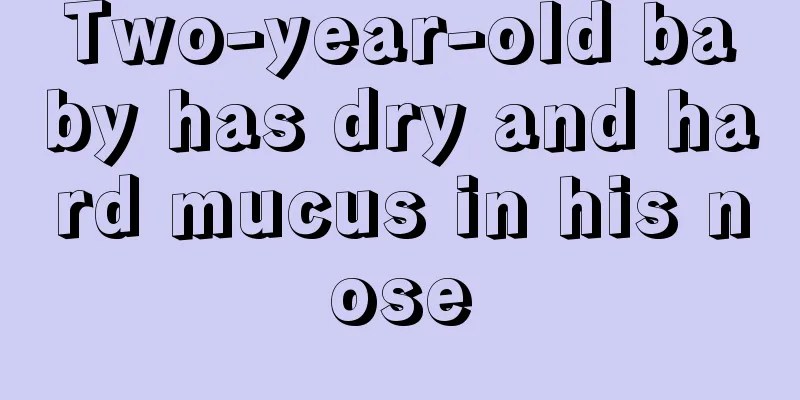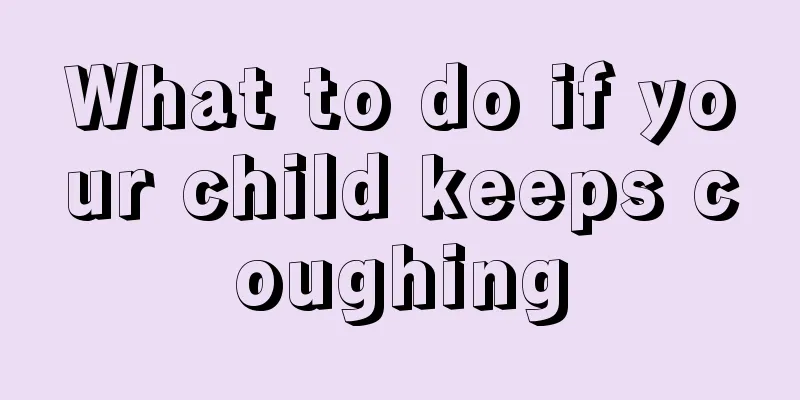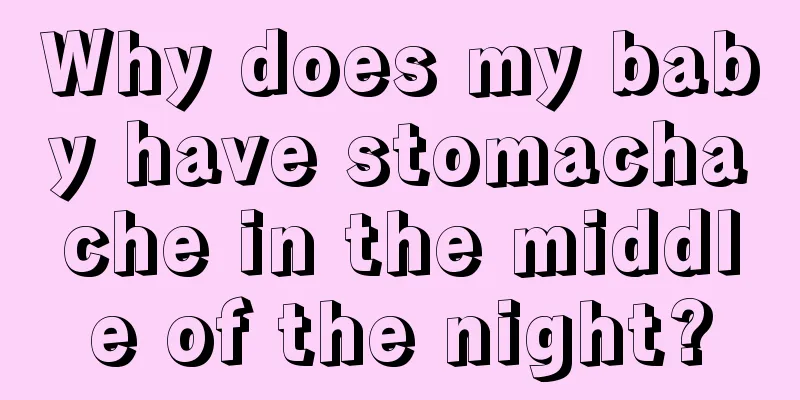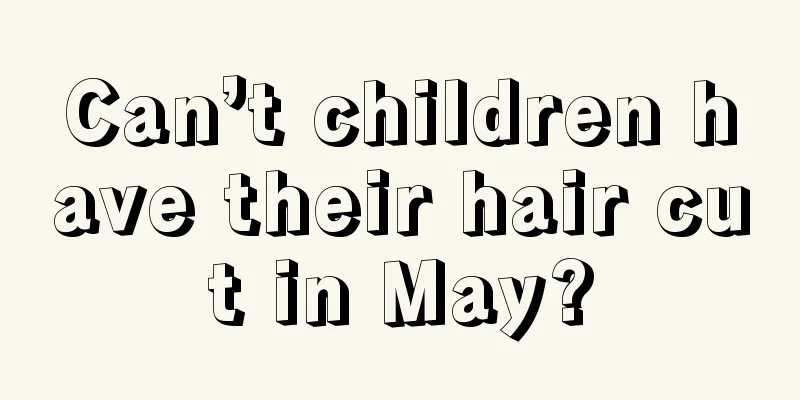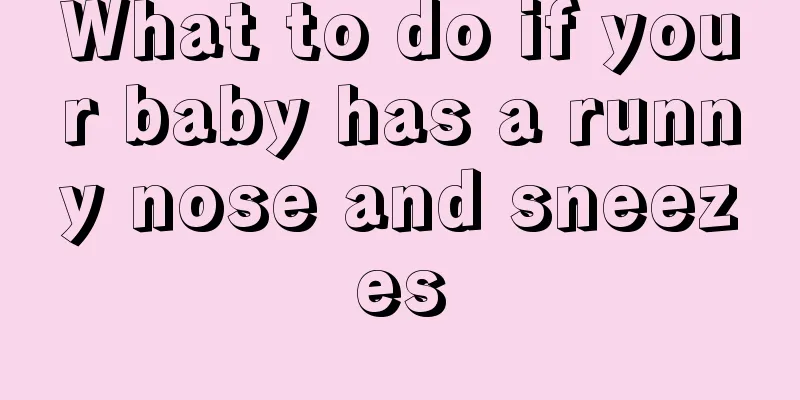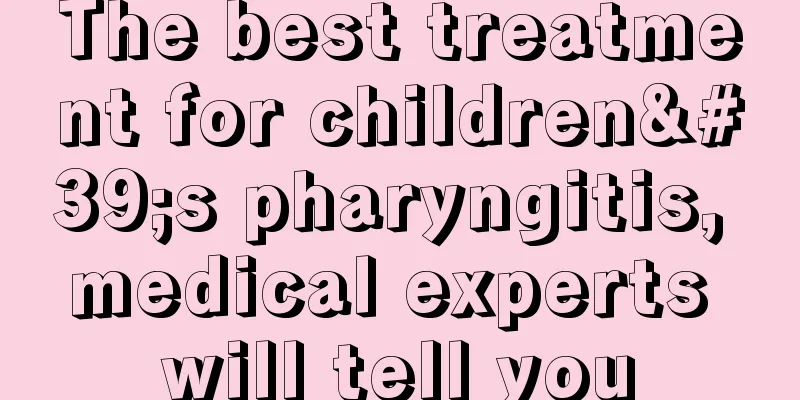What happened to the child who fainted?
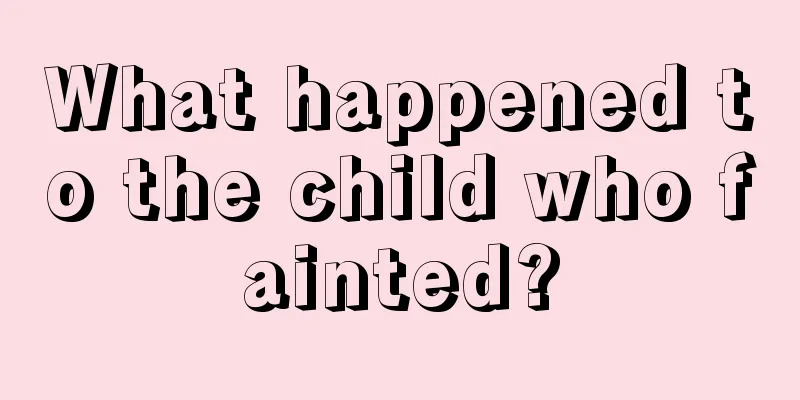
|
If a child suddenly faints, you should take the child to the hospital for examination in time. There are many reasons for a child to suddenly faint. For example, if the child has symptoms of epilepsy, if the child has anemia or low blood sugar, it may cause such symptoms. Therefore, it is necessary to understand the specific cause and provide timely and effective treatment. During the treatment process, we must adopt the best method based on individual needs and the child's different symptoms. What happened to the child who fainted? Syncope refers to a transient loss of consciousness due to a brief lack of blood supply to the brain, often accompanied by decreased or loss of muscle tone and inability to maintain independent posture. It is characterized by rapid onset, short duration, and spontaneous recovery. Syncope is a common emergency in children. Domestic data show that 20-30% of children aged 5-18 have experienced syncope at least once, with the incidence rate in girls being higher than in boys. Fainting can have many causes It mainly includes autonomic nervous system-mediated syncope, cardiac syncope and syncope of unknown cause. Among them, autonomic nervous system-mediated syncope is the most common underlying disease in children with syncope, accounting for about 70-80%, including vasovagal syncope, postural tachycardia syndrome, orthostatic hypotension, orthostatic hypertension, situational syncope, etc., most of which are functional diseases. Children with autonomic nervous system-mediated syncope are more common in adolescent girls. The attack usually occurs in a standing position. There are obvious triggers before the attack, such as standing for a long time, a stuffy environment, mental stress, etc., and there are often significant pre-syncope symptoms, such as dizziness, blurred vision, nausea, vomiting, etc. before the attack. The upright test and the head-up tilt test can trigger autonomic nervous system-mediated syncope. Children are easy to cooperate, have good tolerance, and are easy to operate. They have diagnostic value for autonomic nervous system-mediated syncope. Cardiogenic syncope is syncope caused by abnormalities in the structure or rhythm of the heart. It can occur at any age. There are no obvious premonitory symptoms before the syncope. Exercise can induce syncope and it has nothing to do with body position. Although it is rare, it has a high risk of sudden death and is very dangerous. Electrocardiogram, Holter and echocardiography are valuable for its diagnosis. During the diagnostic process, it should be carefully checked and diagnosed early. In addition, it should be differentiated from some "pseudosyncope" such as epilepsy, hypoglycemia, psychogenic syncope, etc. to reduce misdiagnosis. Treatment of Syncope in Children Standardization, etiology and individualization should be the basic principles, with the main goals of preventing the recurrence of syncope and the harm caused by syncope, reducing the risk of death and improving the quality of life. Treatment measures include autonomic nervous function training and physical therapy, increased salt and fluid intake, drug therapy, pacing therapy, radiofrequency ablation therapy, etc. In short, there are many causes of syncope in children, autonomic nervous system-mediated syncope is the most common, and cardiac syncope is the most dangerous. Children with repeated syncope should be taken seriously and taken to the hospital in time. After the cause is determined, they should receive treatment under the guidance of a doctor to prevent recurrence. |
<<: Newborns fart loudly all the time
>>: Newborn baby crying all day and not sleeping
Recommend
Why does my baby not like to sleep?
Babies’ reluctance to sleep can be a headache for...
Why does the baby shake his head?
When mothers are taking care of their babies, the...
Reasons why children have trouble falling asleep
Insomnia is painful. Sleep is very important. Peo...
How many months can babies take cod liver oil?
For new parents, the arrival of a baby brings too...
Treatment for children crying at night
Children's crying at night often makes us par...
What is happening when my child has blue circles under his eyes?
Babies are always the treasure of the family. If ...
What should I do if my baby has eye mucus after waking up?
For newborn babies, since their resistance is rel...
What are the symptoms of hand, foot and mouth disease encephalitis?
Hand, foot and mouth disease is a common infectio...
Three-year-old baby has heart murmur
If you find that your three-year-old baby has a h...
Can children shave their eyebrows?
Many parents believe that after shaving their chi...
How can girls grow taller
Height is something that many of our friends want...
What is the cause of foamy urine in children?
Generally speaking, it is not a big deal if there...
How to treat language delay in a 2-year-old baby?
Two-year-old babies have delayed language develop...
What to do if bone development is slow
Nowadays, everyone pays more attention to the hea...
What to do if your baby has a rash after having a fever
Many parents have found that their babies develop...
